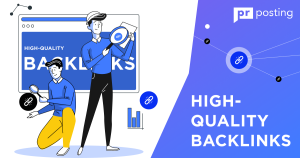
In the ever-evolving digital landscape, having a strong online presence is crucial for businesses looking to thrive in the competitive market. One of the key elements that contribute to a successful online strategy is Search Engine Optimization (SEO). While many aspects of SEO play a role in improving a website’s performance, on page seo services stand out as a fundamental factor in enhancing visibility and attracting organic traffic.
Understanding On-Page SEO: On-page SEO refers to the optimization of individual web pages to improve their search engine rankings and drive relevant traffic. Unlike off-page SEO, which involves external factors such as backlinks and social signals, on-page SEO focuses on optimizing content, HTML source code, and other elements directly within the website.
Key Components of On-Page SEO Services:
- Keyword Optimization:
- Conducting thorough keyword research is the foundation of on-page SEO. Identifying relevant and high-performing keywords allows businesses to strategically place them within their content, meta tags, and headers.
- Keyword placement should feel natural and align with the context of the content, helping search engines understand the relevance of the page to user queries.
- Content Quality and Relevance:
- High-quality, relevant content is essential for on-page SEO. Search engines prioritize content that provides value to users.
- Regularly updating and expanding content keeps the website fresh and signals to search engines that the site is active and authoritative in its niche.
- Meta Tags Optimization:
- Title tags, meta descriptions, and header tags are crucial meta elements that impact search engine rankings. Crafting compelling and concise meta tags not only improves click-through rates but also enhances search engine visibility.
- Each page should have a unique title tag and meta description that accurately reflect the content and target keywords.
- URL Structure:
- A clean and user-friendly URL structure not only improves the user experience but also assists search engines in understanding the content hierarchy.
- Descriptive and keyword-rich URLs are preferred, as they contribute to a better understanding of the page’s content.
- Image Optimization:
- Images are an integral part of web content, and optimizing them can significantly impact on-page SEO. Utilizing descriptive filenames, alt text, and compressing images for faster loading times are essential practices.
- Internal Linking:
- Internal links help search engines navigate and understand the structure of a website. They also distribute page authority throughout the site.
- Including relevant internal links within content can improve user engagement and reduce bounce rates.
Conclusion: Investing in on-page SEO services is a strategic move for businesses aiming to enhance their online visibility and stay ahead in the digital competition. By optimizing individual web pages, businesses can improve search engine rankings, attract targeted traffic, and provide a seamless user experience. As search algorithms continue to evolve, staying up-to-date with on-page SEO best practices is crucial for maintaining a strong online presence and achieving long-term success in the digital landscape.






